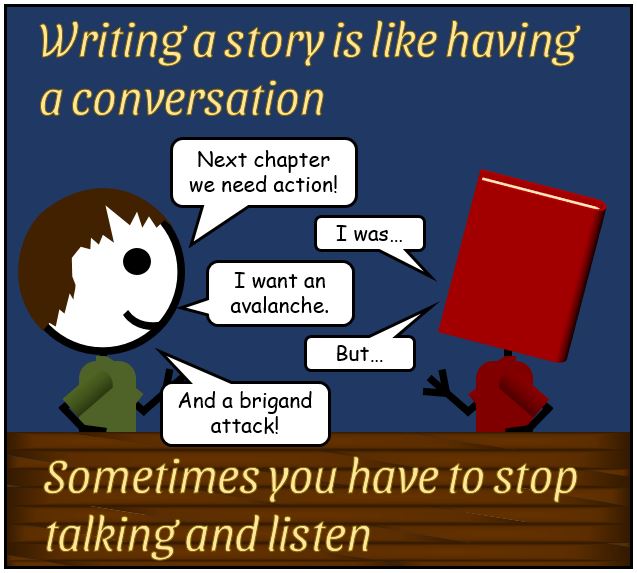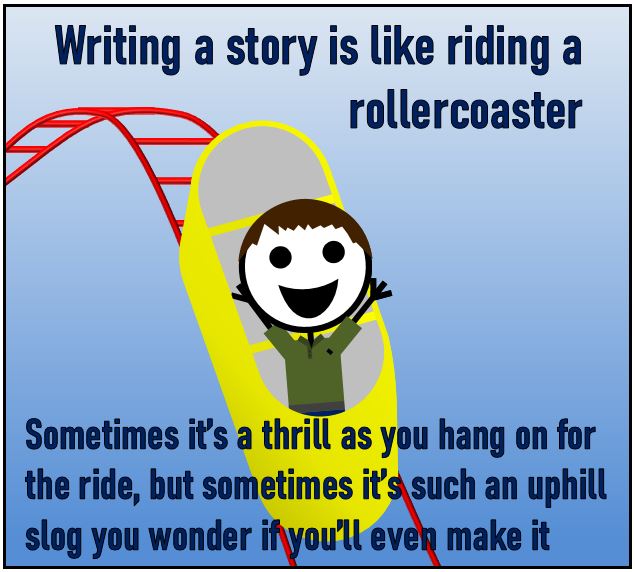I’m feeling a bit whimsical so we’re going to do something a little different this time. We’re going to talk about writing as a simile.
I often wish I could write faster. I know some authors crank out a massive tome every year. Some do it even faster. But I believe that comes at a price. When writing, you have to let the story breathe. I’ve already written a couple articles on writer’s block (Part 1 and Part 2) and this cuts to the heart of it. Forcing the story out too fast risks several things:
- You may compromise character for plot. How many times have we witnessed characters in stories doing something that is contrary to their own personality? It is a major show-stopper, a destroyer of immersion, and permanently damages theme and authorial trust. But sometimes when we’re stuck, it can be an easy mistake to force a character to do something they’d never do.
- You may find yourself vulnerable to deus ex machina. Like compromising character, a sudden flash of authorial intervention to resolve a failing plot can be just as destructive. Earth is being invaded by aliens so powerful that humanity has no chance. How about if the alien mothership has a big red off button that saves the day!
- Finally, we don’t allow for the next simile…
One of the great wonders in writing to me is the fascination with creation. Pulling together a web of interconnected characters and a sea of plot, theme, and setting can be a small homage to creating life itself. Once put on a page, the characters become living people, the plot becomes events in motion, and the setting becomes a dynamic world. Yes, you can bend it to your will like a despot brutally fashioning his great vision, but can also listen to the story you’re weaving and let it pull you in directions that are often a lot more interesting than you envisioned when you began.
A cool story along this vein is one I heard of J.R.R. Tolkien when he was writing “The Fellowship of the Ring.” As the hobbits entered the inn in Bree, they met a mysterious stranger named Strider. When Tolkien first wrote him onto the page, he had no idea who Strider was.
In addition to the above, you might also find it disorienting. Sometimes you may not know if you are going forward, backward, or even upside down. Sometimes it may be so terrifying you wonder why you even hopped on in the first place. But amid the many challenges and struggles, the thrill is there, too.
As a lover of history, writing has been a way for me to understand the world, but it is as much an exploration of who I am. We can’t write what we aren’t any more than we can be someone besides ourselves. This doesn’t mean writing is an exercise in vanity. On the contrary, it is an exercise in discovery. As the ancient Greeks said, “To know thyself is the beginning of wisdom.”



